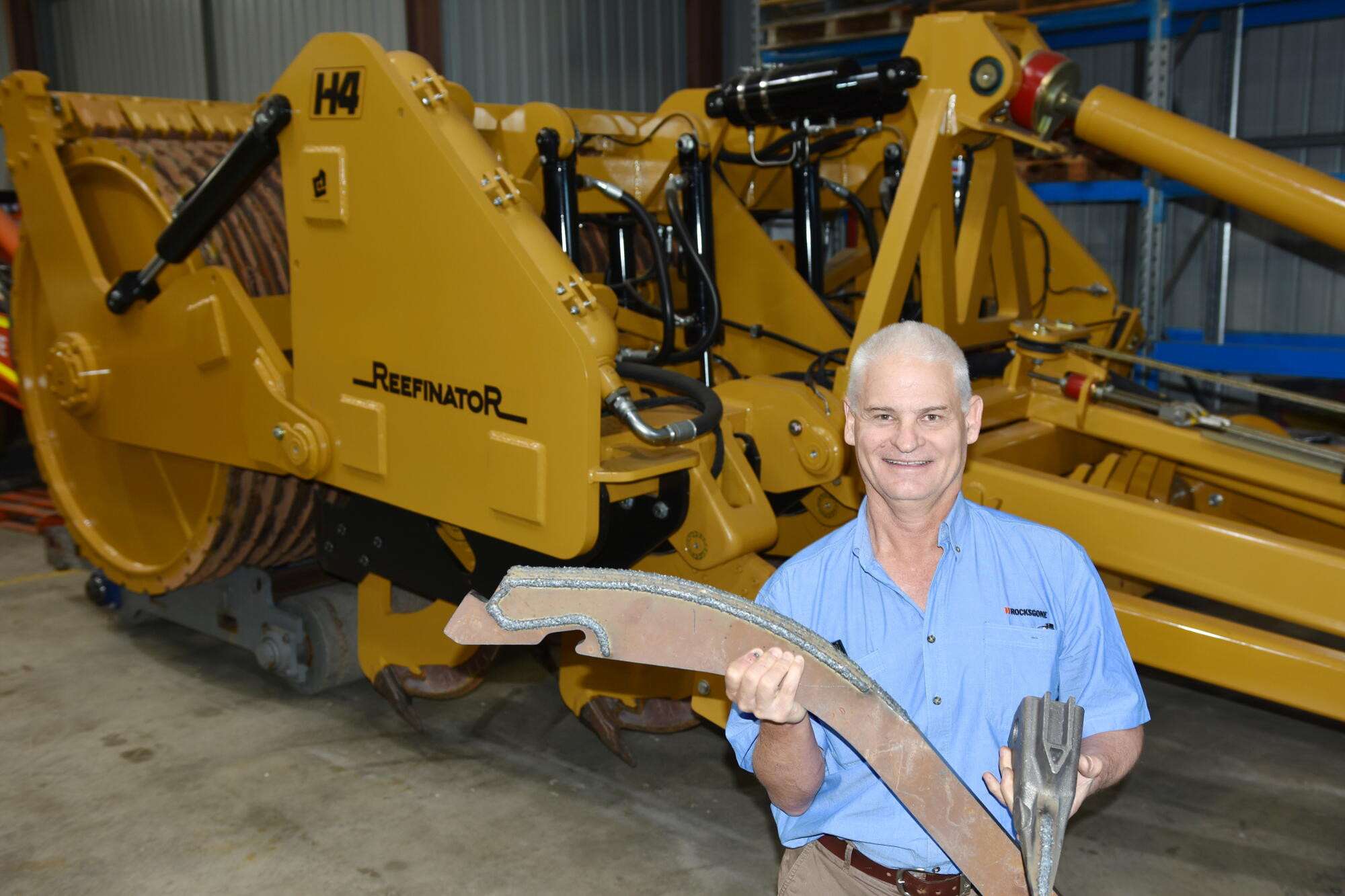Agriculture
23 July, 2024
Giant rock crusher will trample Loddon lands
A GROUND-BREAKING Australian invention aimed at increasing primary production and land use will go on show in the Loddon next week. The rock-crushing H4 Reefinator is being brought from Western Australia for the demonstration at Berrimal. Developed...

A GROUND-BREAKING Australian invention aimed at increasing primary production and land use will go on show in the Loddon next week.
The rock-crushing H4 Reefinator is being brought from Western Australia for the demonstration at Berrimal.
Developed by Rocks Gone founder and former farmer Tim Pannell, the three-metre wide H4 Reefinator comprises a levelling blade, four front row and five rear row hydraulic tines, and a following ribbed drum, all weighing 28-tonne when filled with water and digging up to 600 millimetres deep.
Pulled by 400-horsepower plus tractors, the rig travels at about 10kmh and operators have had to perform on-the-go depth adjustments according to changes in land and rock conditions, however new automated technology has largely removed that pressure and also added other key benefits.
“The laterite rock gets crushed up into silt-like particles and this appears to be really valuable, in addition to reducing the impact on seeding machinery,” Tim said.
“Of course, there is better rooting depth and development, and soil moisture and nutrient retention improves.
“Growers generally spread a couple of tonnes of lime in front of their machines.
“In dirty grass paddocks, they are also improving weed control by ‘reefinating’ during summer, later seeding the rest of their program, and then doing another pass to get a massive weed germination to hit before seeding it last. It is giving them the best, cleanest result.
“The machines are improving saline land as well by increasing soil penetration in land rises.”
The Rocks Gone ‘Depth Master’ auto depth and slip control system calculates speed over ground and tractor load or wheel slip to adjust machine depth up to 50 times per second, as well as the level of its blade.
Operators set the depth and only make a manual adjustment if desired, thereby better optimising machine and tractor performance and resulting in improved crushing results and operational efficiency.
“Before the automation, a lot of input was required and it was quite onerous for operators,” Tim said. “Now with the Depth Master, they just set the depth and then it’s hands-off.
“You can see everything moving – and the levelling, with the blade going up and down to follow undulating country, is amazing as well.”
On-the-go manual adjustment can still be performed, however full manual use previously could result in operators digging too shallow and limiting optimum tractor and crushing performance.
“It was understandable, because rocky country can be so variable,” Tim said.
“With the Depth Master, you calibrate the system for a start and give it eight to 10 slip scenarios – and you can engage it with the rock more aggressively.
“It better utilises your tractor power because it always senses how hard it is working. It saves time because the rig is not stopping occasionally. It is mobile all the time and it is crushing much more rock.”
Tim said the system reduced tractor tyre wear considerably.
“Wheels can already be spinning with manual operation, whereas the Depth Master senses the load and lifts the machine earlier. It might only move 1-2 centimetres, but that makes a big difference with the load. This can double the life of tyres.”